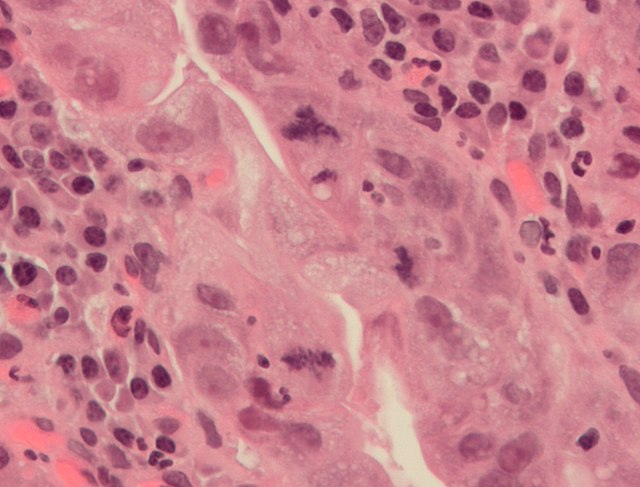Metaphase is a stage of mitosis in the eukaryotic cell cycle in which chromosomes are at their second-most condensed and coiled stage. These chromosomes, carrying genetic information, align in the equator of the cell between the spindle poles at the metaphase plate, before being separated into each of the two daughter nuclei. This alignment marks the beginning of metaphase. Metaphase accounts for approximately 4% of the cell cycle's duration.
Chromosomes lined up on the metaphase plate. Two views with the metaphase plate rotated 60°.
Mitosis is a part of the cell cycle in which replicated chromosomes are separated into two new nuclei. Cell division by mitosis is an equational division which gives rise to genetically identical cells in which the total number of chromosomes is maintained. Mitosis is preceded by the S phase of interphase and is followed by telophase and cytokinesis, which divide the cytoplasm, organelles, and cell membrane of one cell into two new cells containing roughly equal shares of these cellular components. The different stages of mitosis altogether define the mitotic phase of a cell cycle—the division of the mother cell into two daughter cells genetically identical to each other.
Onion cells in different phases of the cell cycle enlarged 800 diameters. a. non-dividing cells b. nuclei preparing for division (spireme-stage) c. dividing cells showing mitotic figures e. pair of daughter-cells shortly after division
A cell in late metaphase. All chromosomes (blue) but one have arrived at the metaphase plate.
Ciliate undergoing cytokinesis, with the cleavage furrow being clearly visible
An abnormal (tripolar) mitosis (12 o'clock position) in a precancerous lesion of the stomach (H&E stain)





